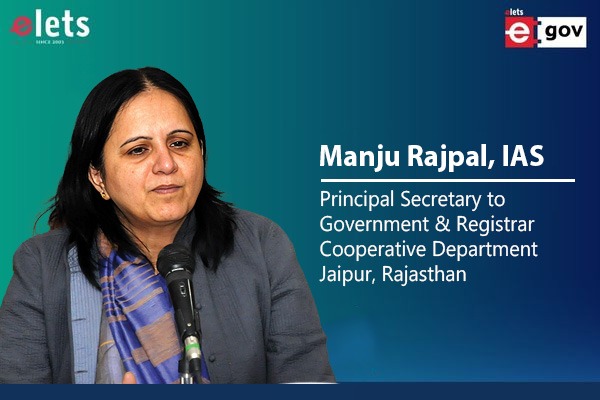
India’s pharmaceutical sector is on an impressive growth path, aiming to transform global access to affordable medicines. According to Invest India, this industry is poised to reach USD 65 billion by 2024 and is projected to expand to USD 130 billion by 2030. India, being the third-largest producer of pharmaceuticals globally by volume, is renowned for its manufacturing capabilities and innovation within the sector. The country makes a significant contribution to the worldwide supply of generics, holding a 20% share, and dominates the vaccine production market, accounting for 60% of the global output, highlighting its crucial role in the international healthcare ecosystem. Additionally, Uttar Pradesh (UP) is emerging as a key player in the pharmaceutical industry, contributing significantly to India’s production capacity and innovation in this sector.
Government initiatives have played a crucial role in supporting this growth. The Production Linked Incentive (PLI) schemes have been instrumental in enhancing domestic manufacturing capacities and drawing foreign direct investment (FDI) to the sector. According to the Department of Pharmaceuticals, Ministry of Chemicals and Fertilizers, investments reached Rs 25,813 crore, with the creation of 56,171 new jobs as of September 2023. These schemes have significantly contributed to the sector’s expansion. Moreover, the Promotion of Research & Innovation Program (PRIP) Scheme, with a financial allocation of Rs 5,000 crore, is designed to encourage innovation and facilitate collaborations between pharmaceutical companies, research institutions, and startups.
Looking forward, with the government’s emphasis on initiatives such as anticipated tax breaks and improvements in the PLI Scheme as indicated in the Union Budget 2024, India is on its way to becoming a global pharmaceutical hub by 2047. These measures, along with the government’s policies and investments, position India at the forefront of tackling global healthcare challenges. India’s proactive approach and commitment to ensuring a healthier future for all exemplify its significant role in the global pharmaceutical narrative.

UTTAR PRADESH PHARMA SURGE

Uttar Pradesh, India’s most populous state, is pivotal in the pharmaceutical sector, supported by its large population, substantial manufacturing and health- care infrastructure. It is also leading the way in fostering innovation and entrepre- neurship with over 10,000 registered startups and more than 60 incubation centres, rekecting a vibrant ecosystem for innovation and entrepreneurship. The state’s commitment to nurturing innova- tion is further underscored by the estab- lishment of ‘Promote Pharma,’ a dedicat- ed institution for pharma research and innovation.

Additionally, Uttar Pradesh boasts the highest number of Micro, Small, and Medium Enterprises (MSMEs) in the country, making a significant contribution to the state’s manufacturing sector growth. Ranking among India’s top manufacturing hubs, the state is home to 608 manufacturing units across diverse pharmaceutical categories and boasts an extensive distribution network with 71,000 wholesale and 108,000 retail drug sale licenses.
Significant investments in healthcare, including a ₹32,009 crore allocation in the 2021-22 budget for health and family welfare, coupled with an emphasis on ed- ucation and skill development, highlight its commitment to the sector’s growth. The state plans to operationalize 49 nursing schools and 49 paramedical schools in the next five years, with a no- table increase in educational seats, add- ing 7,000 MBBS seats, 3,000 postgradu- ate seats, 14,500 in nursing, and 3,600 in paramedical courses, ensuring a robust supply of skilled professionals to the pharmaceutical industry.
This focus on education and infrastructure development is complemented by a landmark initiative: the launch of a Pharma Park in Lalitpur, Bundelkhand, spanning 1,472 acres. Spearheaded by the Uttar Pradesh State Industrial Development Authority (UPSIDA), this project, which will develop in two phases starting with an initial 300 acres, signifies a major step towards enhancing the state’s manufacturing capabilities. Utilizing modern surveying techniques for precision, this ambitious endeavour underscores Uttar Pradesh’s aspirations to become a major hub in India’s pharma industry.
With these strategic investments in healthcare infrastructure, a thriving startup ecosystem, and a focus on bolstering education and skill development, Uttar Pradesh is set to further solidify its position as a key player in the pharmaceutical industry. The state has highlighted its robust growth, with plans to initiate projects worth Rs. 10 Lakh crore, reflecting its status as one of the fastest-growing economies in India. The prospects for the state’s pharmaceutical sector are promising, aiming to improve healthcare outcomes for its population and contribute significantly to the growth of India’s pharma industry.
STRATEGIC INVESTMENT CATALYSTS
Infrastructure Advantage
Uttar Pradesh, a key player in the Indian pharmaceutical industry, boasts a strategic position on the Golden Quadrilateral, enhancing its export capabilities through a myriad of infrastructural advantages. With an extensive road network and access to the National Capital Region to the west, the state offers pivotal access to the markets and resource depth of eastern India. It is home to the country’s largest railway network, covering over 8,949 km, and hosts major national and international airports that connect it with the rest of India, the Middle East, and Southeast Asian countries. The presence of three existing international airports in Lucknow, Kushinagar, and Varanasi, alongside an upcoming one in Jewar, significantly boosts its connectivity. The proposed National Waterway-1 (NW-1), which will link Allahabad to Haldia port, alongside Uttar Pradesh’s inclusion in 8.5% of the Delhi Mumbai Industrial Corridor (DMIC) catchment area and 57% of the Amritsar- Kolkata Industrial Corridor (AKIC), further underlines its infrastructural prowess. The intersection of the Western and Eastern Dedicated Freight Corridors at Greater Noida, coupled with multi-modal logistic hubs and industrial parks, is poised to significantly reduce travel times to ports. The development of expressways such as the 340-km Poorvanchal Expressway, Bundelkhand Expressway, and the Lucknow-Agra Expressway, alongside enhanced 4-lane and 6-lane state highways, not to mention the air, water, road, and rail networks including the NW 1 waterways that connect Allahabad, Varanasi, and the Haldia seaport, Uttar Pradesh is set to solidify its infrastructure advantage, providing a robust foundation for its export-oriented pharmaceutical sector.
Raw Material Base and Growing Industry
The State, already distinguished as the fourth largest in terms of Micro, Small, and Medium Enterprises (MSMEs) in India, is further enhancing its industrial landscape through the establishment of Northern India’s first Medical Device Park in Gautam Buddh Nagar, Noida. Situated on a sprawling 350-acre plot in Sector 28 along the Yamuna Expressway, this park has attracted an investment of around Rs 415 crore from 59 companies, poised to create approximately 5,000 jobs directly. The initiative aims to significantly bolster India’s self-sufficiency in medical device manufacturing, covering a wide range of products from orthopedic implants to critical care equipment like ICU ventilators and coronary stents, thereby addressing the current dependency on imports which stands at about 80%. With an overall investment projected at Rs 5,250 crore, the park is expected to generate over 20,000 employment opportunities, underlining its role as a major economic catalyst in the region. The strategic involvement of institutions such as IIT-Kanpur in setting up an incubation center within the park underscores its commitment to innovation and support for startups, enhancing its attractiveness to companies looking to enter or expand within the medical devices sector.
Availability of Labour and Strong R&D Base
Uttar Pradesh renowned for its vast reservoir of skilled and unskilled manpower, is also distinguished by its host of prestigious research institutes, particularly in the pharmaceutics sector. Central to this academic and research excellence are institutions such as the CSIR-Central Drug Research Institute and the Indian Institute of Toxicology Research, both located in Luc- know, which stand at the forefront of drug research and toxicology studies, respectively. The state also boasts the National Institute of Pharmaceutical Education and Research in Raibareli, dedicated to ad- vanced studies in pharmaceuticals, alongside the Central Institute of Medicinal and Aromatic Plants in Lucknow, which delves into the research of medicinal herbs. Adding to the scientific milieu, the National Botanical Research Institute in Lucknow explores plant sciences, whereas the Biological Sciences and Bioengineering Department at IIT Kanpur, and the Biotechnology Department at MNNIT Allahabad, contribute to the state’s bioengineering and biotechnological research capabilities. Furthermore, the Indian Institute of Technology in Banaras Hindu University, King George’s Medical University, and the Sanjay Gandhi Post Graduation Institute of Medical Sciences, all in Lucknow, along with the Indian Pharmacopoeia Commission in Ghaziabad and the National Institute of Biologicals in Noida, underscore Uttar Pradesh’s pivotal role in medical, bio-logical, and pharmaceutical education and research. This concentration of institutions not only highlights the state’s academic prowess but also its strategic importance in the national research and development landscape, particularly in the fields of medicine, pharmacology, and biotechnology.
KEY INVESTMENT OPPORTUNITIES
India’s 4th largest state, with a population density of 829 per km², leads in bulk drugs and generic medicine production. It offers vast opportunities for domestic and export markets, supported by a large consumer base and excellent connectivity to major ports. The state is ideal for advanced drug distribution, with a growing wellness drug market propelled by technology. With 56% of its population in the working age group and numerous top-tier research and educational institutions, Ut- tar Pradesh is enhancing its education and skill development to meet industry needs. It’s making significant progress in R&D, focusing on drug testing, CRAMS, biologics, biosimilars, AYUSH, and phytomedicine, positioning it as an innovation hub. The expansion in healthcare infrastructure, including new hospitals and medical device manufacturing, further strengthens its role in India’s pharmaceutical and healthcare industries.
KEY ENABLERS
- Three-Tier Healthcare System: Public and private healthcare sectors are expanding, ensuring widespread access to healthcare services.
- Pharmaceutical Growth: 262 Janushadhi Pariyojana Centres offer affordable medicines. 100,000 pharmacists and 86,063 retail pharmacies ensure widespread pharmaceutical availability.
- R&D Excellence: India boasts 18 world-class Pharma Research Institutes, including CSIR-Lucknow, NIB-Noida, IITR-Lucknow, King George Medical University-Lucknow, and NBRI, emphasizing its commitment to pharmaceutical research and innovation.
- FDI Opportunities: A liberal FDI policy allows 100% FDI for new pharma projects and 74% for existing ones, simplifying investment in the sector.
- Vast Market Potential: With a massive population, India offers the largest consumer base for pharmaceuticals and healthcare products.
- Skilled Workforce: 208 specialised colleges in Medical, Bio-Technology, and Pharmacy education contribute to a robust healthcare workforce.
ENVISIONING A PIONEERING FUTURE
Uttar Pradesh is gearing up to unleash groundbreaking initiatives in the pharmaceutical sector, with a spotlight on digital health technologies, personalized medicine, and eco-friendly manufacturing practices. The state is poised to harness digital advancements to broaden healthcare access through telemedicine, ensuring services reach every corner of its vast landscape. This digital transformation is set to be complemented by a green revolution in manufacturing, establishing Ut- tar Pradesh as a benchmark for sustainable pharmaceutical production globally.
Simultaneously, the state is on the cusp of embracing personalized healthcare, leveraging genomics and biotech innovations to offer customized treatment solutions, thereby elevating patient care to new heights. This forward-thinking approach is anticipated to catalyze a vibrant startup ecosystem, nurturing groundbreaking innovations in pharmaceuticals. Uttar Pradesh’s commitment to these exclusive and unique initiatives marks the beginning of a new era in healthcare, positioning it as a global leader in innovative and sustainable pharmaceutical solutions.
Be a part of Elets Collaborative Initiatives. Join Us for Upcoming Events and explore business opportunities. Like us on Facebook , connect with us on LinkedIn and follow us on Twitter, Instagram.
"Exciting news! Elets technomedia is now on WhatsApp Channels Subscribe today by clicking the link and stay updated with the latest insights!" Click here!













